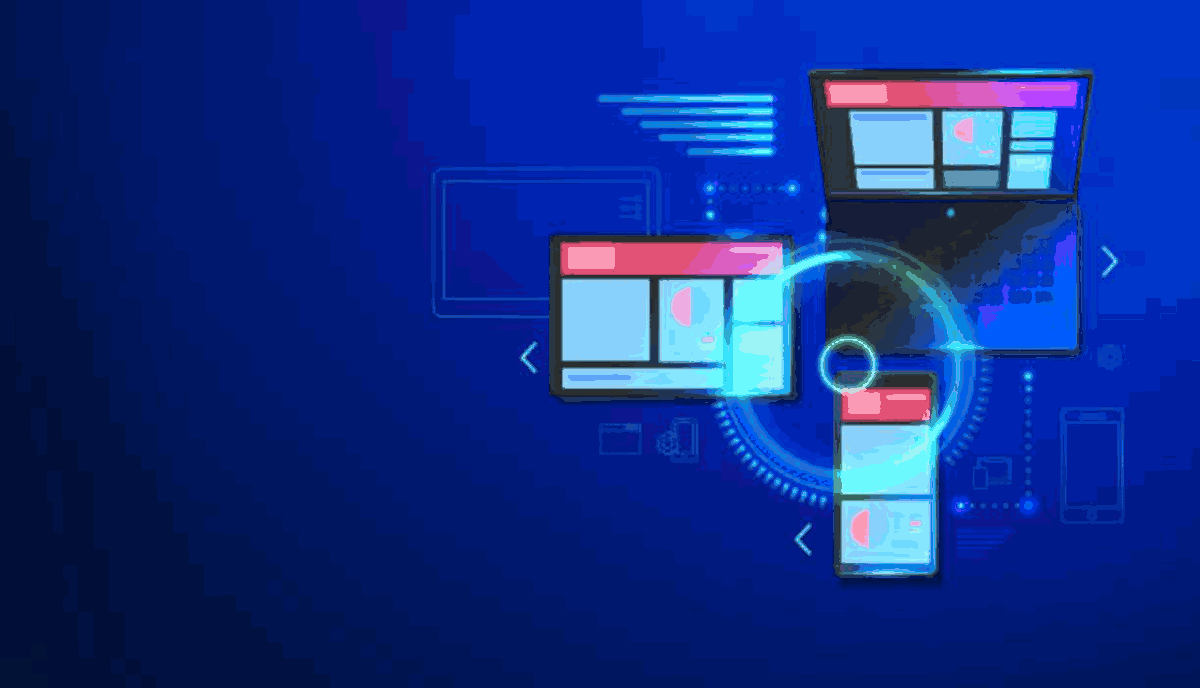We Help You Hire Flutter Developer From South America
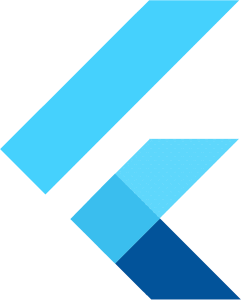
Your next project can often be stressful and time-consuming if you cannot find the right nearshore company to hire with. Smart, responsible, hardworking, and experienced Cross Platform Flutter App developers are ideal candidates for your role.
The AI matching algorithm we use helps your organization find the ideal development partner for your project. The method we use to match your team is a combination of data and personal interviews.
We are dedicated to helping you hire Flutter developers who will contribute quality code right from the start. This is why we have refined our hiring processes over the past several years and have become a trusted partner for many startups that are growing rapidly. Add an expert to your team with Hire Cross Platform Developer and hire your future Flutter App Developer.
Work to US Time
Our developers work US hours and are happy to communicate with your existing team so they can gel with them.
Brazilian Rates
Our team is made up of talented and experienced Flutter developers from Brazil who are eager to work with US companies.
No Employment Tax
Benefits, local employment taxes, and other employment-related expenses are handled by our company.
Tested Flutter Engineers
It ensures your hiring a skilled professional who has passed our testing process when you hire a Flutter engineer from us.
Testimonials



Why Use Flutter For App Development?
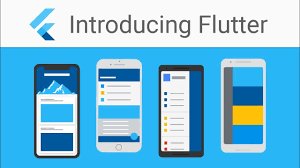
Flutter is an open-source UI software development kit (SDK) created by Google, which allows developers to build high-quality mobile, web, and desktop applications from a single codebase. It has gained significant popularity in the app development community due to its numerous advantages and capabilities. In this response, we will explore three key reasons why Flutter is a preferred choice for app development.
Cross-platform Development
Flutter enables developers to create applications that can run on multiple platforms with a single codebase. It uses a reactive framework that allows developers to build user interfaces for both iOS and Android simultaneously. This cross-platform capability reduces the development time and effort required to create separate codebases for different platforms. With Flutter, developers can maintain consistency across platforms, ensuring a uniform user experience and reducing maintenance efforts.
Fast and Expressive User Interfaces
Flutter provides a rich set of customizable widgets, allowing developers to create visually appealing and highly interactive user interfaces. It uses a modern rendering engine to deliver smooth and fluid animations, resulting in a delightful user experience. Additionally, Flutter’s “hot reload” feature enables developers to see the changes instantly, significantly speeding up the development process and facilitating rapid iteration and prototyping.
Native Performance
One of the key advantages of Flutter is its ability to achieve native performance on multiple platforms. Flutter applications are compiled directly to native machine code, eliminating the need for interpretation or a bridge between the application and the platform. This results in high performance and smooth animations, comparable to those of applications built using platform-specific technologies. Flutter also provides access to native features and APIs, allowing developers to leverage the full capabilities of the underlying platform.
What Flutter Offers
Flutter offers a compelling platform for app development, providing cross-platform capabilities, fast and expressive user interfaces, and native performance. Its versatility and efficiency make it a preferred choice for developers looking to build high-quality applications across different platforms. Whether you are targeting mobile, web, or desktop, Flutter can streamline your development process and deliver impressive results.
- Single codebase for multiple platforms.
- Beautiful and customizable UI widgets.
- Native performance on multiple platforms.
- Access to native device features.
- Fast development and iteration process.
- Cost-effective cross-platform development solution.
- Consistent user experience across multiple platforms.
- Efficient maintenance with a single codebase.

Igor Lopes
Cross Platform Flutter App Developer
11+ Years of App Development 3+ Years of flutter Development. Has a wealth of app development expertise across many industries

Gustavo Batista
Flutter Developer
8+ Years of Android App Development 3+ Years of Cross Platform Flutter development. He enjoys working on front end and backend

Edvaldo Fernandes
Flutter App Developer
10+ Years of iOS Objective C and Swift 4+ Years of Flutter App development. Experienced senior web developer who enjoys a challenge.
What does a Flutter App Developer do?
A Flutter app developer is responsible for designing, developing, and maintaining mobile, web, or desktop applications using the Flutter framework. Their primary role revolves around writing code, creating user interfaces, implementing functionality, and ensuring the application runs smoothly on various platforms.
Their tasks include translating design mockups into code, implementing interactive user interfaces using Flutter widgets, integrating APIs and backend services, managing state and data flow within the application, and optimizing performance. They collaborate with designers, product managers, and backend developers to deliver a cohesive and user-friendly application.
Additionally, Flutter app developers conduct debugging and testing to identify and resolve issues, perform code reviews to maintain code quality and stay updated with the latest Flutter advancements and best practices. They may also be involved in deploying applications to app stores or web servers, monitoring app performance, and providing ongoing support and maintenance.
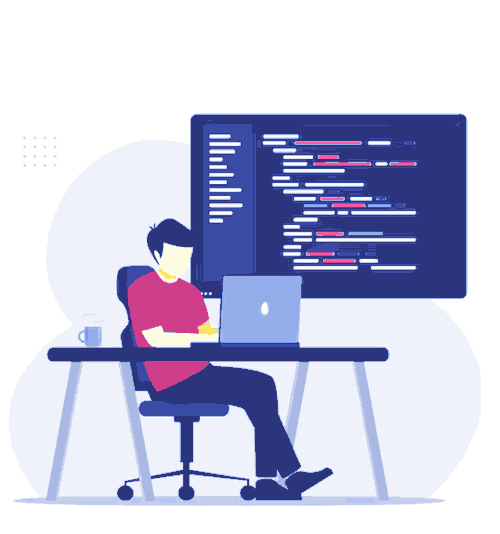
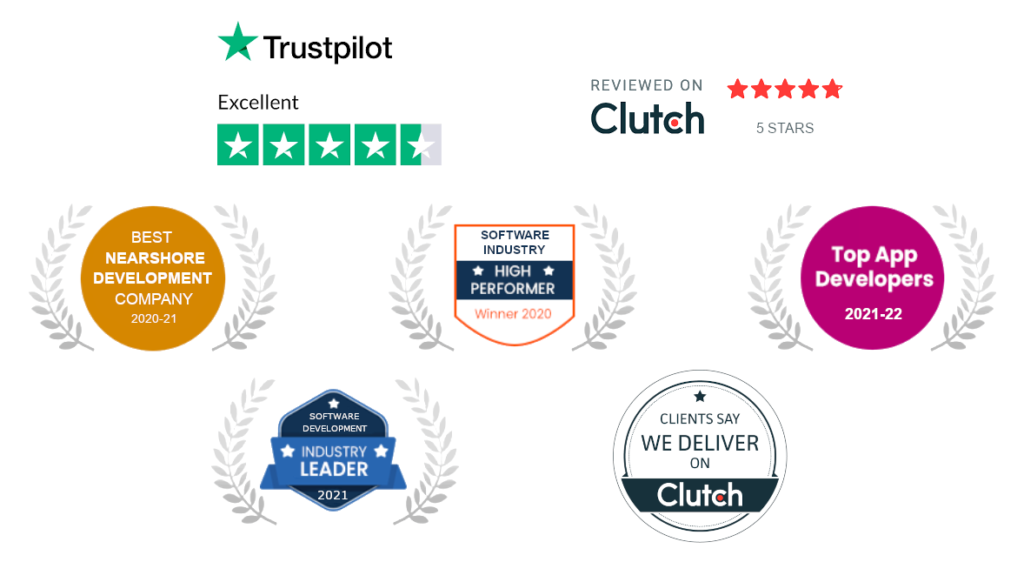
We Are A Solid App Development Partner
When developing cross platform Apps, Hire Cross Platform Developer understands the importance of working with a reliable partner. As a result, we provide a premium and professional service to all our clients. Get in touch with us now to start your dev team!
How do you Hire a Flutter Developer with us?
Follow these three steps to hiring a Flutter App developer:
Please click on the button below and click send on the form once you’ve written a description of your project and needs.
I interview Cross Platform Flutter developers based on their resumes. Start shortlisting professionals you want to interview once proposals start coming in.
When you write your requirement description, you determine the scope of your work and the type of Flutter developer you need.
In order to receive a fast and detailed response, please include the following information:
Detailed deliverables: From iOS to Android and backend API’s, list them all.
Identify whether the project is small or large in your job posting.
Let us know if you prefer experience with certain industries, software.
Billing: Please indicate your preference for hourly rates versus priced monthly contracts.
How much does it cost to Hire a Flutter Developer?
Several factors affect cost, including expertise, experience, market conditions, and location.
Additionally, an experienced Cross Platform Flutter App developer will provide higher-quality results, work faster, and have more specialized knowledge.
While they gain experience, beginners might be able to price their Multiplatform App development services lower.
Below are the rates for hiring our South American Flutter App Developers:
Junior
Prices From- Works to U.S time zones
- No Recruitment Fees
- Vetted Skills & Experience
- Fulltime Working for you
- No Unreliable Freelancers
Intermediate
Prices From- Works to U.S time zones
- No Recruitment Fees
- Vetted Skills & Experience
- Fulltime Working for you
- No Unreliable Freelancers
Senior
Prices From- Works to U.S time zones
- No Recruitment Fees
- Vetted Skills & Experience
- Fulltime Working for you
- No Unreliable Freelancers
We have Cross Platform Flutter App Developers in South America available for hire!
Depending on the exact skill requirements and experience requirements, the price of developers may vary slightly.
Depending on your project, you’ll need to determine which is right for you.
What does Flutters Dart code look like?
In the Flutter framework, Dart is the programming language used for writing code. Dart is a modern, object-oriented language that combines the best aspects of familiar languages like JavaScript, Java, and C#. It offers a concise syntax, strong type inference, and features such as asynchronous programming, making it suitable for developing Flutter applications. Dart code in Flutter is used to define the user interface, implement functionality, and handle events.
Code example for responding to a button click by changing the background color of the app:
import 'package:flutter/material.dart';
void main() {
runApp(MyApp());
}
class MyApp extends StatelessWidget {
@override
Widget build(BuildContext context) {
return MaterialApp(
home: Scaffold(
appBar: AppBar(
title: Text('Change Background Color'),
),
body: ColorChanger(),
),
);
}
}
class ColorChanger extends StatefulWidget {
@override
_ColorChangerState createState() => _ColorChangerState();
}
class _ColorChangerState extends State<ColorChanger> {
Color _backgroundColor = Colors.white;
@override
Widget build(BuildContext context) {
return Container(
color: _backgroundColor,
child: Center(
child: RaisedButton(
onPressed: () {
setState(() {
// Change the background color to a random color
_backgroundColor = Colors.primaries[
_getRandomIndex(Colors.primaries.length)];
});
},
child: Text('Change Color'),
),
),
);
}
int _getRandomIndex(int max) {
return DateTime.now().millisecondsSinceEpoch % max;
}
}
In the above example, we create a Flutter app that changes the background color of the screen when a button is pressed. The main function initializes the app by running MyApp, which is a stateless widget. The MyApp widget sets up the basic structure of the app and defines ColorChanger as the body of the app.
Interview Questions to ask a Cross Platform Web developer
How does Flutter achieve cross-platform development?
Asking this question helps assess the candidate’s understanding of Flutter’s key features. Their response should mention Flutter’s ability to use a single codebase for building apps on multiple platforms like iOS, Android, web, and desktop. Understanding cross-platform development in Flutter showcases their knowledge of the framework’s fundamental benefits, such as reduced development time and effort.
Can you explain the concept of hot reload in Flutter?
This question evaluates the candidate’s familiarity with one of Flutter’s powerful features. Their answer should describe hot reload as the ability to instantly view code changes during app development without restarting the application. A good explanation would highlight the benefits of hot reload, such as accelerated development iterations and improved productivity.
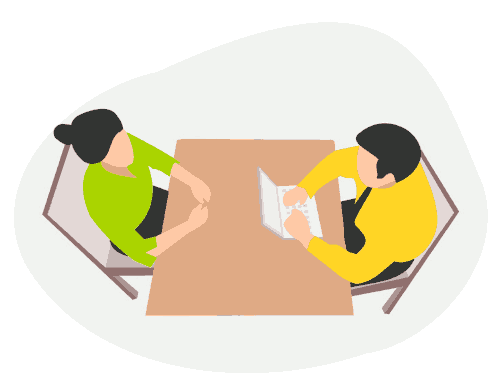
How would you handle asynchronous operations in Flutter?
This question examines the candidate’s proficiency in handling asynchronous tasks, which are common in app development. Their response should showcase knowledge of using async and await keywords, Future objects, and working with asynchronous libraries and APIs. A strong answer demonstrates their understanding of writing asynchronous code that maintains a responsive user interface.

Do you enjoy Working Alone or within a Team?
There is no right or wrong answer to this question since Flutter Developers can have differing combination of skills. Having an engineer who is hardworking and independent may be important to you. You might prefer someone who works well with others and isn’t stubborn.
What are the key differences between StatelessWidget and StatefulWidget in Flutter?
This question assesses the candidate’s understanding of Flutter’s widget hierarchy. Their answer should highlight that StatelessWidget is immutable and does not have internal state, while StatefulWidget can maintain its state and update it. They should explain the scenarios where each type of widget is typically used and discuss the performance implications of using stateful widgets.
Flutter Development History
Flutter, an open-source UI software development kit (SDK), was introduced by Google to facilitate the development of high-quality applications across multiple platforms. Understanding the history of Flutter sheds light on its evolution and growing prominence in the app development landscape.
Inception and Alpha Release
Flutter’s development began in 2015, and it was initially known as the “Sky” project. The primary goal was to create a framework for developing apps on multiple platforms using a single codebase. Google announced the alpha release of Flutter at the Dart Developer Summit in October 2017, providing developers with an early glimpse of its capabilities.
Stable Release and Growing Adoption
Flutter reached its stable version, Flutter 1.0, in December 2018, marking a significant milestone in its development. The stable release signified Flutter’s readiness for production use and gained attention from the developer community. It gained traction due to its cross-platform capabilities, fast development cycles, and impressive UI capabilities, leading to a growing number of developers and companies adopting Flutter for app development.
Maturation and Ecosystem Growth
Since its stable release, Flutter has continued to mature and evolve rapidly. Google has actively worked on enhancing Flutter’s performance, stability, and feature set, addressing developer feedback and expanding its ecosystem. Flutter now boasts a vast collection of customizable UI widgets, extensive support for platform integration, and a thriving ecosystem of packages and plugins contributed by the Flutter community. The growth of the Flutter ecosystem has empowered developers to build sophisticated applications across mobile, web, and desktop platforms.
Flutter’s development history showcases its journey from inception to becoming a robust and popular framework for cross-platform app development. With its stable release, Flutter gained momentum, attracting developers with its unique features and benefits. As Google continues to invest in its development, Flutter is likely to experience further growth, bringing innovations and advancements to the world of app development.
Flutter Vs React Native framework for Cross Platform Development
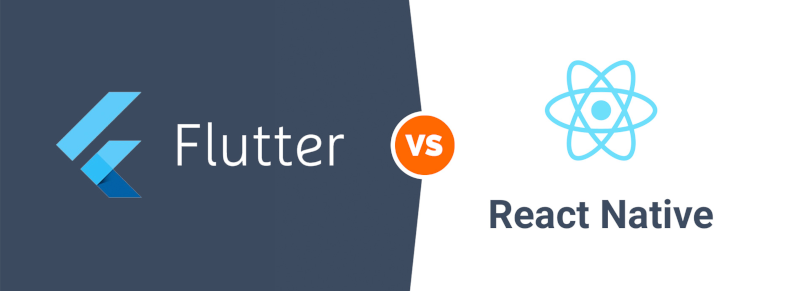
When it comes to cross-platform app development, two prominent frameworks often come into consideration: Flutter and React Native. Flutter, developed by Google, and React Native, maintained by Facebook, are both popular choices for building high-quality applications. Understanding the differences and similarities between these frameworks can help in making an informed decision for cross-platform app development.
Performance and User Interface
Flutter uses its own rendering engine called Skia to draw user interfaces, resulting in consistent and smooth animations across platforms. Its performance is often regarded as excellent, as it compiles to native machine code. On the other hand, React Native uses native components and relies on the bridge to communicate with the underlying platform, which can lead to performance limitations and occasional inconsistencies in user interface elements.
Development Speed and Efficiency
Flutter offers a hot reload feature, enabling developers to instantly view code changes without the need to restart the app. This rapid iteration process significantly speeds up development and allows for quick prototyping. React Native also provides hot reloading, but it may require additional configuration and can sometimes be less reliable compared to Flutter.
Ecosystem and Community
React Native has a mature ecosystem, benefiting from its early adoption and the support of a large developer community. It offers a vast collection of ready-to-use components and libraries, allowing developers to leverage existing solutions. Flutter, although relatively newer, has been rapidly growing its ecosystem and community. It provides a rich set of customizable widgets and actively encourages contributions from the Flutter community.
Choosing between Flutter and React
When choosing between Flutter and React Native for cross-platform app development, factors such as performance, development speed, and ecosystem play a crucial role. Flutter excels in performance and offers a streamlined development experience with features like hot reload. React Native has a mature ecosystem and a large community support base. Ultimately, the choice depends on the specific project requirements, existing technical expertise, and the preferences of the development team.
Why you should choose us to hire a Flutter Developer with?
As a leading Nearshore Technology Solutions provider, we provide high quality developers at reasonable prices. High-performance, scalable cross platform Apps are our goal for our clients.
Our programming skills and project management experience are utilized to accelerate or rescue App development projects. Throughout the project development phase and beyond, we strive to create long-term value.
Since 2014, we’ve matched skillful developers with great teams for over a hundred startups and tech companies worldwide.
You will find our Flutter developers to be devoted members of your team, fully integrating into your team’s operation.
Flutter App developers that we hire undergo a thorough vetting process to ensure they have the necessary communication skills, remote work readiness, and technical skills (both for Dart and App development depth, as well as for a wide range of computer science and App development knowledge).
Reduce Costs
In order to reduce costs, companies usually outsource. The cost of hiring Flutter engineers outside the United States is lower. Additionally, you will be able to reduce overall employment costs significantly. There won’t be any US or European employment taxes, benefits, redundancy liabilities, or office space fees
Ramp Up Faster
Taking advantage of growth and downsizing quickly can be a great competitive advantage for any industry. When you hire South American Flutter developers through us, you will be able to scale up or down as needed, and do so relatively easily.
Trusted Partner
By outsourcing App development, you’re entrusting your project to a company with extensive experience helping businesses succeed. Thus, you can rest assured that your application will be delivered on schedule and within budget.
What type of Apps can you create with a Flutter Developer?
With a Flutter developer at your company, you will have the opportunity to create a wide range of applications using Flutter’s versatile capabilities. Flutter empowers developers to build cross-platform apps for various industries and use cases.
You can develop mobile applications for iOS and Android, ranging from productivity tools, social media platforms, e-commerce apps, news aggregators, and more. With Flutter’s rich widget library, you can create visually appealing and interactive user interfaces that deliver a delightful user experience.
Furthermore, Flutter’s ability to target the web opens up possibilities for developing responsive websites and progressive web applications (PWAs). You can create web-based tools, interactive dashboards, content management systems, and other web applications using Flutter’s powerful features.
Additionally, Flutter’s support for desktop platforms allows you to build applications for Windows, macOS, and Linux. Whether it’s productivity apps, media players, data visualization tools, or desktop versions of existing mobile applications, you can leverage Flutter’s cross-platform capabilities to reach a broader audience.
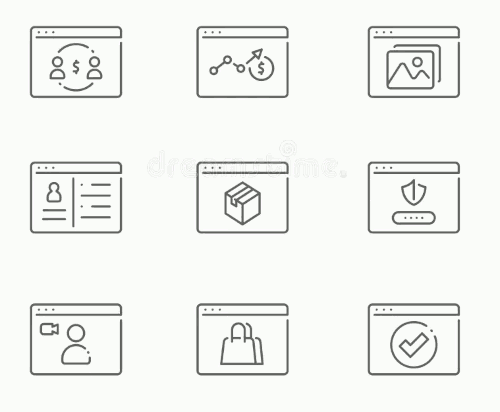
- Financial management app powered by Flutter.
- Cross-platform productivity tool using Flutter.
- E-commerce mobile app with Flutter.
- Social media platform built with Flutter.
- Real-time data analytics application using Flutter.
- Customer relationship management (CRM) app with Flutter.
How do we test a Flutter developer before we hire them?
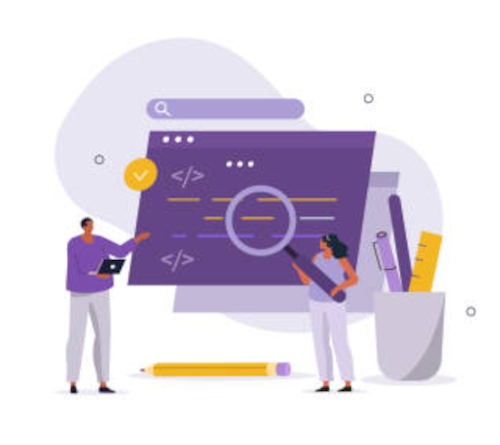
To test a Flutter developer, we assess their skills and expertise through a multi-step evaluation process. Starting by reviewing their resume, portfolio, and any open-source contributions they may have made. We look for relevant experience, completed projects, and a strong understanding of Flutter and Dart.
Next, we conduct a technical interview to gauge their knowledge and problem-solving abilities. We ask questions related to Flutter’s core concepts, widget hierarchy, state management approaches, asynchronous programming, and platform integration. Asking the candidate to solve coding challenges or provide sample projects to assess their coding skills.
We find it beneficial to observe their proficiency in using Flutter’s development tools, such as the Flutter command-line interface and debugging tools. We also evaluate their understanding of UI/UX principles and their ability to create visually appealing and responsive user interfaces.
By combining these evaluation methods, we can assess a Flutter developer’s technical skills, problem-solving capabilities, familiarity with Flutter’s ecosystem, and overall fit for your organization’s requirements.
The best way to manage your Cross Platform Flutter development team?
Managing a cross-platform Flutter app development team requires effective coordination, communication, and organization to ensure smooth collaboration and efficient project execution. Establishing a structured approach to team management is crucial for maximizing productivity and delivering successful outcomes.
Clear Project Vision and Goals
Provide a clear project vision and set specific goals for the team. Clearly communicate the project objectives, target platforms, and desired outcomes. Ensure that everyone understands the project scope, timeline, and key deliverables. This clarity will align the team and guide their efforts towards a common goal.
Agile Development Methodology
Implement an agile development methodology, such as Scrum or Kanban, to manage the development process effectively. Break down the project into manageable tasks and iterations, assign them to team members, and track progress using tools like Jira or Trello. Conduct regular sprint planning, daily stand-ups, and retrospective meetings to ensure continuous improvement, transparency, and accountability within the team.

Collaborative Communication and Documentation
Encourage open and collaborative communication channels within the team. Utilize collaboration tools like Slack or Microsoft Teams for real-time communication, discussion, and knowledge sharing. Maintain comprehensive documentation, including project requirements, design specifications, coding conventions, and development guidelines. This ensures that team members have access to essential information and can collaborate efficiently.
Team Skill Development and Support
Support the professional growth of team members by providing opportunities for learning, training, and skill development. Organize regular knowledge-sharing sessions, conduct code reviews, and encourage participation in relevant conferences or meetups. Foster a supportive environment where team members can seek guidance, share ideas, and collaborate on problem-solving. Recognize and acknowledge individual and team achievements to boost morale and motivation.
Putting Agile into practice goes beyond adopting Agile methodologies. Our team helps you choose the right Agile methodology after taking the time to understand your business. Choosing the right working methodology can increase productivity, shorten time-to-market, and reduce the number of bugs.

How long on average does a Flutter Developer stay at a company?
Cross Platform Flutter App Developers in the US tend to stay between 1.8 and 3.2 years in their jobs, with larger companies keeping workers longer. On average, Brazilians spend between 2.4 and 4.1 years in the job, with Sao Paulo residents spending the shortest amount of time there. Previously, people tended to spend their entire careers with the same company.
Flutter developers with experience may depart from one job to another for new opportunities and more money, as such longevity is no longer the norm. The most in-demand cross platform pros can migrate between jobs (or even freelance) fairly easily in this market due to a low unemployment rate and a great need for professionals with mobile, cloud, and other important skills. We offer perks to attract and retain top talent, and we value communication with employees.

Frequently Asked Questions (FAQs)
Our services are trusted by hundreds of startups and tech companies worldwide, and we have matched hundreds of skilled developers to great development teams in the US, UK and Canada. Every Flutter developer in our network goes through a vetting process to verify their communication abilities, remote work readiness, and technical skills, both for depth in Cross Platform App development and breadth across the greater programming domain.
The job description of a Flutter Developer should include the following:
Developing, implementing, and managing apps
New app testing and evaluation
Enhancing existing apps by identifying areas for improvement
Coding in an efficient manner
Analyzing operational feasibility
Establishing procedures for quality assurance
Implementing app and tools, processes, and metrics
Upgrades and maintenance of existing Apps
Assisting other developers, UX designers, and business analysts with their tasks
It’s not enough to just ship features; your software needs to help your business succeed. In order to better understand what you’re building, for whom, and why, we’ll begin our collaboration with a discovery process.
Our headquarters are in Sao Paulo, Brazil. We have clients from all over the world. We have successfully collaborated with companies in North America, Asia, the Middle East, and Europe. A good understanding of each client and excellent English communication skills help the process run smoothly.
We can work with you to scale the team down as needed and make sure you have the correct skills required for each project phase.
All Types! You can hire a Cross Platform Flutter Developer on a full-time, part-time, or contract-to-hire basis at Hire Cross Platform Developer. You can find a Flutter developer in a time zone that suits your needs thanks to our global network of skilled software engineers. Flutter Developers who work remotely for us are all mid- and senior-level professionals, ready to code right away.

